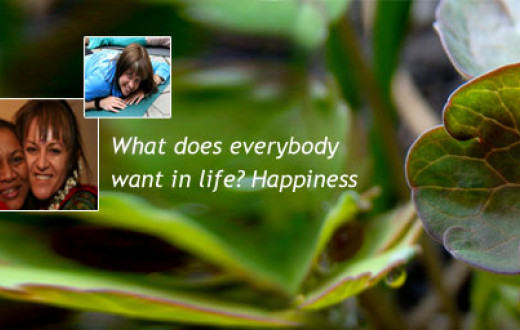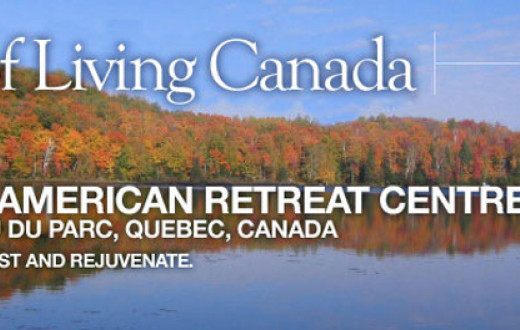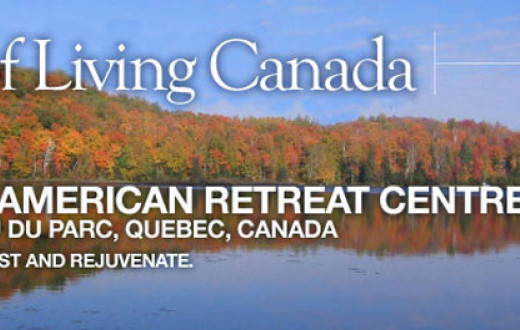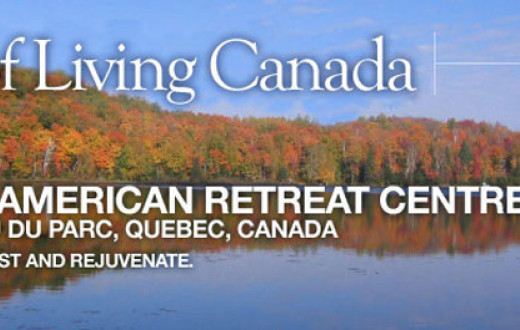February 2008
Excerpt of the Inaugural address by Gurudev Sri Sri Ravi Shankar - Honoring Diversity
Om namah pranavaarthaaya shuddha gyaneka murtaye;
Nirmalaaya prashaantaaya dakshina murtaye namah.
One thing I noticed today, among all the dignitaries and monks present, is that the program has taken off with some silence. Do you notice that there is an underlying silence? Our words or thoughts are like seeds being sown in the field of silence. There is already an atmosphere that all you venerable masters, sanyasis have created right here, right now. What we talk is not that important but what we are is more important. I am so glad to be in the presence and company of all of you who exude that silence and wisdom.
The topic is similarities and differences between Vedanta and Buddhism. Let us first see the similarities. Vedanta has always been fighting against any form of discrimination, superstitions and ritualistic practices. It has always stood for uniting mankind. Today rituals have taken over the philosophies of all the religions in the world. The essence of spirituality, the real wisdom has taken a back seat.
I thought now is the time when we must bring the wisdom to the forefront. When there is wisdom, even though there are different view points, there will be no conflict. Wisdom always views reality from various different angles. Honoring the diversity, finding unity in it, is wisdom. Celebrating diversity in oneness and finding unity in diversity are the two main aspects of wisdom.
In today’s world, when we see so much conflict and violence, I thought that there cannot be any better solution than bringing Buddhist and Vedanta thoughts to the forefront in the world. The two great traditions which have come out of this land were never in conflict. They existed in such a beautiful cooperation that it is an example for the whole world to follow. I once heard that President Nixon from America went to Japan and he was sitting between a Shinto priest and a Zen monk.
There was an inter-faith conference and President Nixon asked the Shinto priest, “What is the percentage of Shintos in Japan?” The priest replied, “Shintos represent 80 percent of the population in Japan.” President Nixon then turned to the Zen monk and asked, “What is the percentage of Buddhists in Japan?” The monk said “80 percent”. President Nixon was so confused. He asked, “How is it possible?” The priest and monk said it was possible because in every Shinto shrine, there was a statue of the Buddha and in every Buddhist shrine, the Shinto faith was honored.
The greatness of Buddhism is that it has always honored the Buddhas of the past, the present and the future. The Vedantic philosophy has also always honored the Gurus and Rishis of the past, present and the future. The second verse of the Rigveda says, “Rishih Purverbhirnutanedo Sadevamyeh”. Honoring wisdom which is timeless and which comes up from time to time with differences in interpretation is a specialty of this part of the world.
There are in all ten religions in the world – four are from the Middle East and six are from the Far East. If you look at history, there was never a war between the six religions of the Far East. There was never a war between Jainism and Buddhism or Sikhism or Shintoism or Taoism because we emphasize on wisdom. Why not share this specialty or this quality which we possess with the rest of the world? The world needs to know how to live amidst differences and celebrate those differences.
Within Hindusim, there are so many schools of thought. There is Bhakti Pant, Advaitya, Vishitha Advaita, Shakti Vishishta Advaita and many other schools of thought. There are some good things in every school of thought, something very practical. It is wisdom that focuses on those beneficial aspects, the unity amongst these things and moves forward. Look at the problems facing Myanmar, Sri Lanka or even in India where violence has taken a front seat. The land of the Buddha, the land of Adi Shankara, the land of Mahavira, today is facing Maoists problem, domestic violence, alcoholism and drugs. These issues are prevalent in the world and we have to jointly address them. Today, Japan tops the list of depressed people with 20 million people.
Young people are getting so depressed. Around 27 percent of Europe is living in depression. We, the Buddhist tradition and the Vedantic tradition, have the solution for these ills of society. Buddhism takes one inward to that meditative state, deep within one self from where one can combat the social ills of today – depression, discrimination, violence. I fully support the struggle of Buddhist monks in Myanmar to have a free society.
Usually it is thought that monks or vedantics should simply confine themselves to their meditation practices and not interfere with society. I think it is a wrong notion. The monks have to be agents of social change and only monks can do this because they do not have any personal or selfish interest. All that you need to say is “Sarve Jana Sukhino Bhavantu”. Saying this chant daily in the morning and evening, will give direction to our action. Sri Lanka is facing the same problem of terrorism. Nepal is the only Hindu country in the world to face unspeakable amounts of violence. Peace has to exude from our being. This is where Vedanta plays an important role. It is Buddhism which has put so much stress on meditation and nirvana, not by simply sitting and imagining what the heart sutra says, “Nothing is everything”.
Buddhism, one system of philosophy, says, “Nothingness of everything” while Vedanta, the other, says, “Fullness of everything”. Vedanta says it’s all full and Buddhism says, “It is nothing.”A couplet in the Yoga Vashistha illustrates this by saying the self is so empty like the sky and so full like the ocean. These are two different ways of looking at the truth. Adi Shankracharya was against the Mimansa system because they were sacrificing souls in the name of religion. Buddhism also spoke against various Vedic sacrificial ceremonies which were prevalent in those days.
The two systems have, in fact, seen the same reality from two different sides and have presented them to the world which is full of conflicts today. The responsibility of bringing the two traditions in harmony, resolving conflicts, bringing peace lies with all of us, in whatever manner possible. In these two days of deliberation, I am sure we will have brilliant discussions on how to go about our planning. I am so happy to have you all and to be in your presence.
Let us make some concrete plans. Plans happen when all of us sit together and decide. If one person makes a plan and shares it, it is not everybody’s plan. So we all have to think. Conferences are meant for this. We need concrete plans for heightening our awareness, Jagrut Chetna. How can we enhance spirituality in religion and reach it to people from all corners of the planet so that the whole world lives in peace?
























